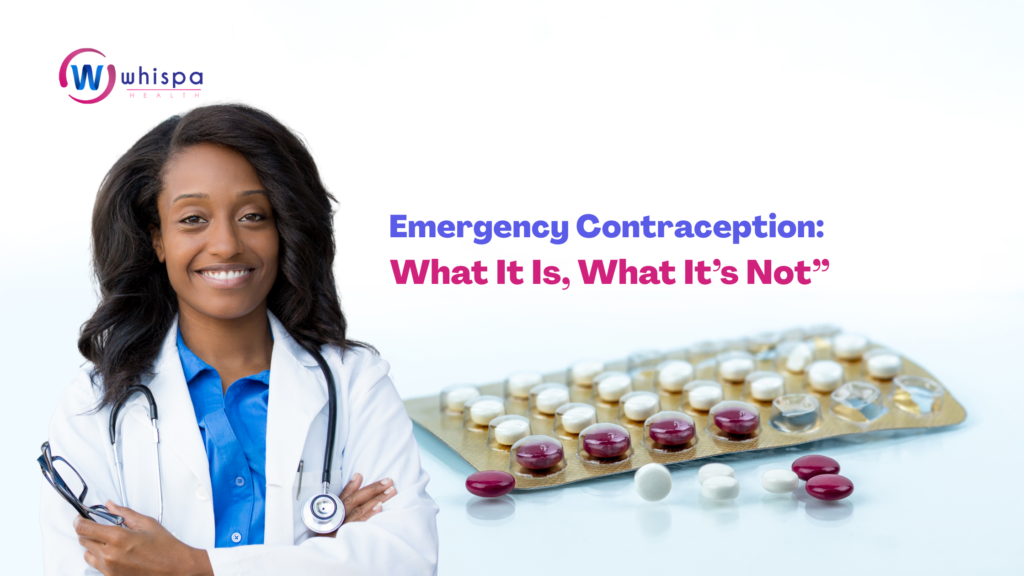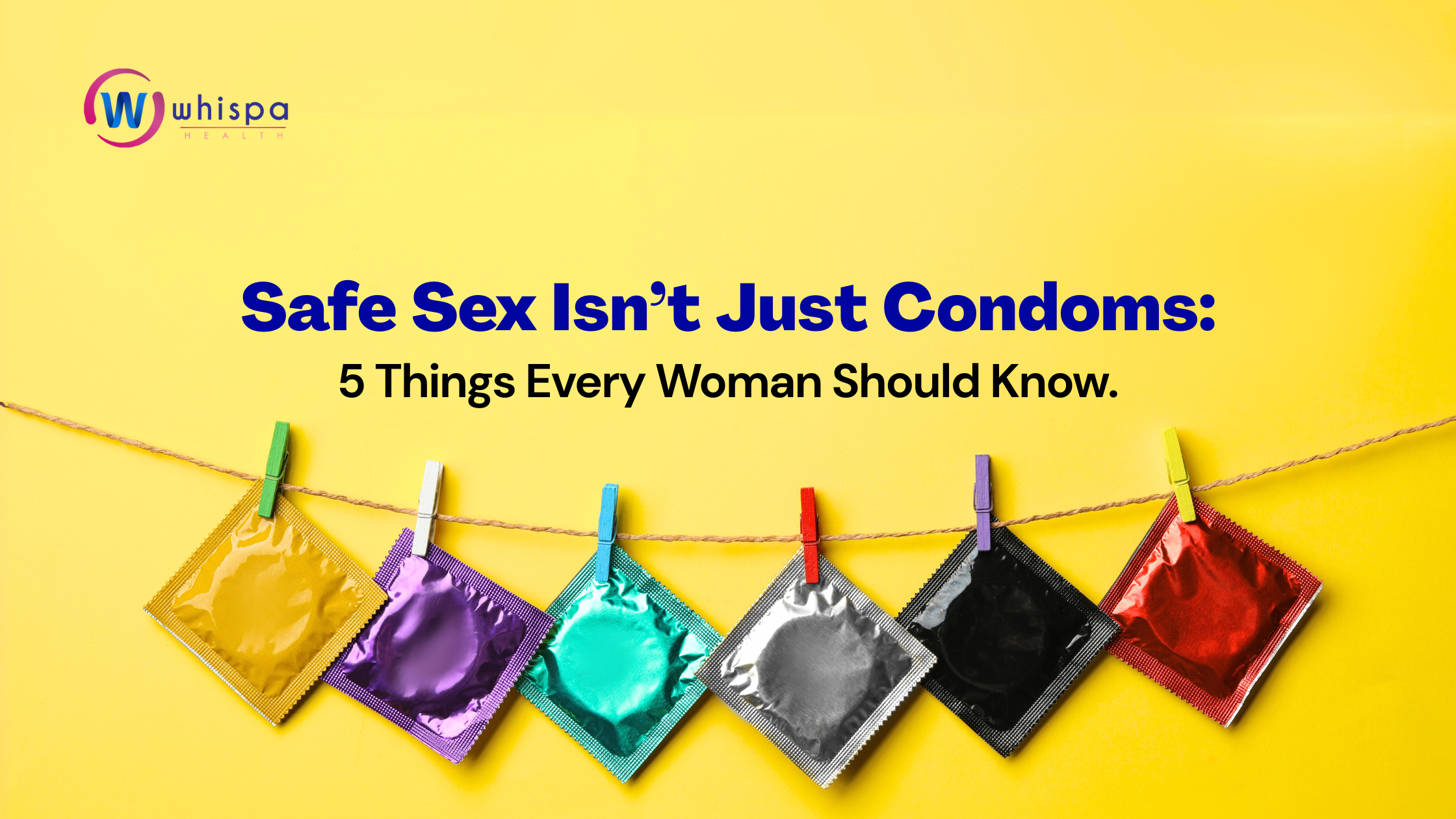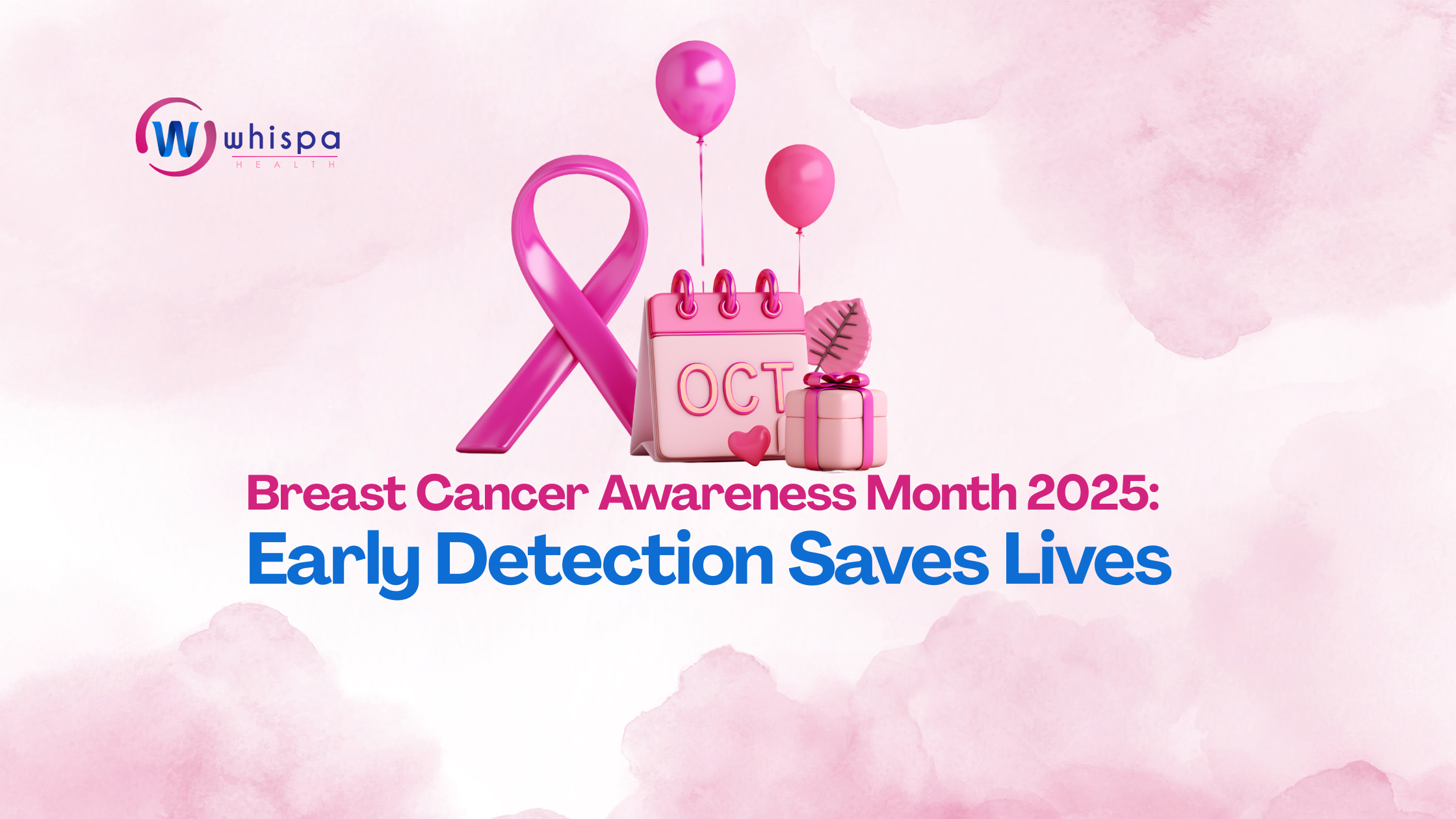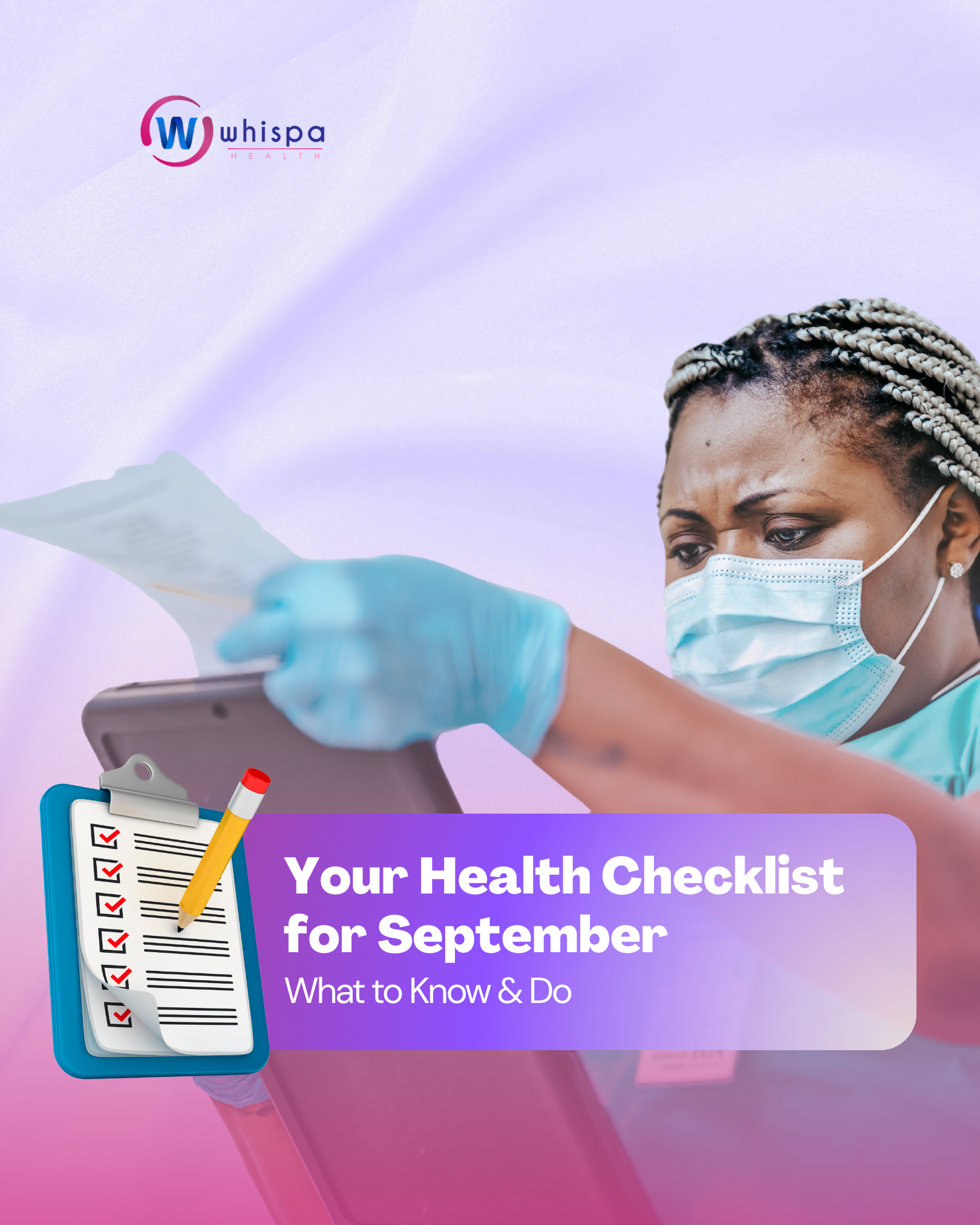Emergency contraception (EC) is one of the most misunderstood topics in reproductive health. At Whispa, we get questions like: “Is it the same as abortion?” “Can I take it every month?” and “What if I take it too late?” So let’s set the record straight.
What Emergency Contraception Is
- A Backup Plan: EC is a safe method used to prevent pregnancy after unprotected sex or contraceptive failure (e.g. a condom breaking or missed birth control pills).
- Time-Sensitive: The sooner you take it, the better. Most emergency pills work best within 72 hours, but some can be taken up to 5 days after sex.
- Widely Available in Nigeria: At Whispa, we offer discreet access to emergency contraception, along with expert guidance from doctors—no judgment, no shame.
- Safe and Effective: It won’t harm your fertility or affect your chances of getting pregnant in the future.
What Emergency Contraception Is Not
- Not an Abortion Pill: EC works before pregnancy begins by delaying ovulation. It does not terminate an existing pregnancy.
- Not for Regular Use: It’s not meant to replace your everyday contraceptive. Taking EC frequently can lead to irregular periods and isn’t as effective as regular birth control methods.
- Not a Guarantee: While EC is highly effective, it’s not 100%. If you vomit within 2 hours of taking the pill or take it too late, its effectiveness may drop.
- Not Without Side Effects: Some users experience nausea, headaches, or changes in their next period. These are usually temporary.
Our Final Thoughts
Emergency contraception is a reliable backup plan when you need it most. It works best when you know how and when to use it. Have questions? Confused about your options? Book a private consultation with a Whispa doctor today and take control of your health on your own terms.
Book Now on Whispa




